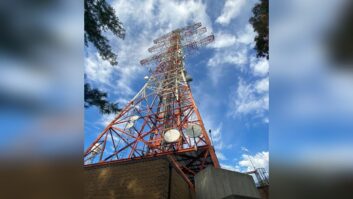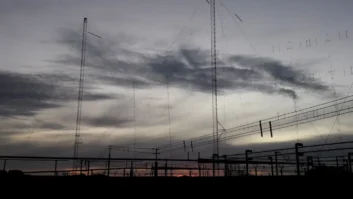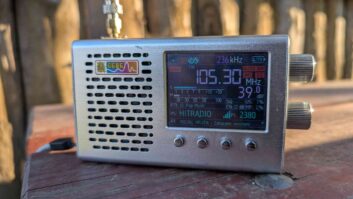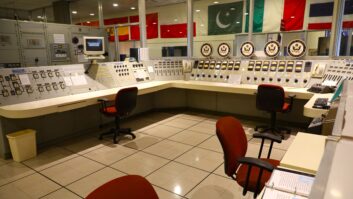
The author is chairman of the High Frequency Coordination Conference, which is a non-governmental, non-profit association that manages and coordinates global databases of international shortwave broadcasting. This is one in a series of occasional commentaries.
A19 FREQUENCY COORDINATION
Tunisia in North Africa will be the site of the A19 Global Coordination Conference for shortwave broadcasters. The A19 broadcast season runs from March 31 to Oct. 27, 2019. Most of the world’s major shortwave broadcasters and many government regulatory authorities attend these conferences, organized by the HFCC, the Arab States Broadcasting Union and the Asia-Pacific Broadcasting Union.
The A19 Conference will be hosted by ASBU, which is headquartered in Tunisia. Nearly 100 delegates from more than 40 countries are expected to participate. The purpose of these meetings is to coordinate station transmission schedules prior to the start of each semi-annual broadcast season so that no two stations are broadcasting on the same frequency at the same time to the same region of the world.

About 85 percent of the world’s shortwave transmissions are coordinated at these conferences, virtually eliminating any potential interference issues before the start of each season.

INTERNATIONAL RADIO FOR DISASTER RELIEF
In other shortwave topics: International Radio for Disaster Relief project was the brainchild of former chief engineer of Radio Prague and HFCC co-founder Oldrich Cip, who passed away last year. The idea was to arrange for designated shortwave frequencies that are reserved and can be used by international broadcasters in the event of natural disasters such as hurricanes, earthquakes, floods, landslides, tsunamis, etc.
Shortwave radio is often known as “crisis radio” as people tend to listen to it in greater numbers in the event of emergencies. When disaster occurs, local and regional radio stations, satellite and Internet coverage may be off the air due to damage, but shortwave stations in distant locations can still get through to listeners who have low-cost battery-powered (or solar-powered or wind-up) radios. In some cases, aid workers distribute these types of radios to affected communities so they can hear shortwave broadcasts.
In the event of a disaster, any shortwave broadcaster can register temporary usage of the allocated IRDR frequencies through the HFCC on a first-come, first-served basis. For some time, the IRDR Working Group has been monitoring the shortwave bands and finding available frequencies in each major band that have been allocated for permanent IRDR use. See Table 1 for a list of the current IRDR frequencies and times reserved.

The goal was to have IRDR frequencies recognized at the ITU level. In September 2016 the HFCC sent a contribution to the ITU-R Working Party 6A explaining the background of the IRDR project and how the IRDR frequencies may be used for emergency broadcasts.
In March 2017 WP6A adopted a recommendation called “Use of IRDR frequencies for emergency broadcasts in the HF bands” and sent it to a study group for approval. In the same month ITU-R Study Group 6 approved the recommendation.
Michael Puetz of Media Broadcast in Germany and chairman of the IRDR Project Working Group says that IRDR “intends to raise awareness of international radio for disaster risk management and persuade broadcasters and administrations to reconsider the planned closure of shortwave transmitting sites.”
EXPANSION IN SPAIN
And in October, Spain’s international broadcast service Radio Exterior de Espana doubled its daily shortwave broadcasts from four to eight hours per day. Most transmissions are in Spanish, but REE has now re-introduced programs in English and other foreign languages.
The station had dropped shortwave broadcasts in 2014 and resumed them a short time later but on a limited schedule and only in Spanish. But as of the A18 broadcast season REE has defied the trend of downsizing or eliminating shortwave by government-owned international broadcasters since the end of the Cold War.
REE is intended for Spaniards abroad, Spanish fishing fleets in international waters and for general overseas audiences in multiple languages.
Jeff White is general manager of WRMI Radio Miami International in Florida. Got a question about shortwave? Email us at [email protected] and we’ll share it with Jeff White for a future column.







